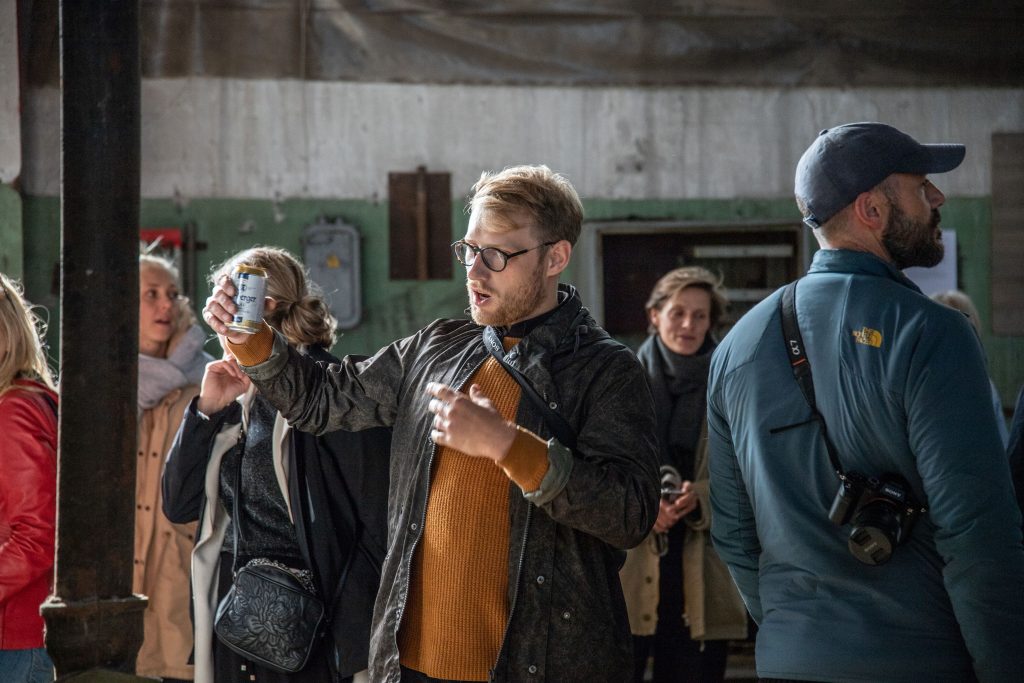Urbiquity Urban Lab 2019 Opening

Stefano Carnelli, Pablo Conejo, Mattias Malk // IT, ES, EE
Urbiquity Urban Lab 2019 is a 6-day programme of walks and talks, practice and theory.
Urbiquity Urban Lab is a one-week programme of theory and practice where urbanists from all around the world can learn from and add to the local urban discourse. The workshop is open to all artists, architects, researchers and urbanists who are motivated to experiment with methodology and forge new contacts in doing so. The aim of the Urban Lab is to use visual methods to study the urban environment and learn from both international and local experts. By investigating the urban struggles that derive from the cities’ specific geopolitical contexts, the participants create new projects around the central theme.
‘In Transit’ – the Urban Lab 2019 title – refers to the movement of a person, item or place as in physical displacement or relocation. It can however also relate to the action of passing through and across space. As such it describes both transition as well as arrival and is central to understanding the ebbs and flows that constitute modern cities. The idea of transit or transition is also relevant in studying the increasingly tense relations between the clashing identities reshaping national borders in Europe and further afield. As such it offers an intriguing framework for studying a multicultural, diverse and multilayered urban environment such as Tallinn.
Concentrating on the entire span of Kopli street, participants adopt an interdisciplinary approach to investigating a multitude of urban topics such as gentrification, appropriation, stigmatisation, displacement as well as heritage and beauty among others. In cooperation with the Estonian Academy of Arts, Tallinn Architecture Biennale and Põhjala factory the Urban Lab will investigate the seemingly polarised realities of Kopli street and uncover possible contradictions as well as similarities.
Within the framework of Kopli Street, the various polarities of Tallinn are manifest: wealth and poverty, inclusion and isolation, creativity and stagnation. If the start of the street is dominated by Telliskivi’s creative city, Kopli peninsula is still dotted with decaying buildings – the rebuilding, demolition of which, and eviction of former precarious inhabitants to make room for future apartment owners are exemplary of the general power dynamics and acquisition practices that shape the city. In this case, the ‘acquirers’ are real estate developers and, of course, the ‘acquisition’ is first and foremost of the historical, which can be profited from by romanticising it. In the case of Kopli the historical is predominantly industrial. Of course, industrial heritage is only romantic when the industry itself is no longer working; that is, in Kopli dormant value and decay are expressed in the same aspects of the urban fabric.
Urbiquity, founded by Stefano Carnelli, Pablo Conejo and Mattias Malk, is a platform for creative and critical urbanism. Using visual methods alongside text and materiality, Urbiquity aims to investigate sociality in the built environment and generate new knowledge of the ways we inhabit increasingly multilayered, contextual and connected global localities. Our aim is to relate to seemingly imperceptible processes – either too large or small, too distant or close to grasp without conscious study. Urbiquity employs both urban theory and creative practice in creating new, interdisciplinary research.